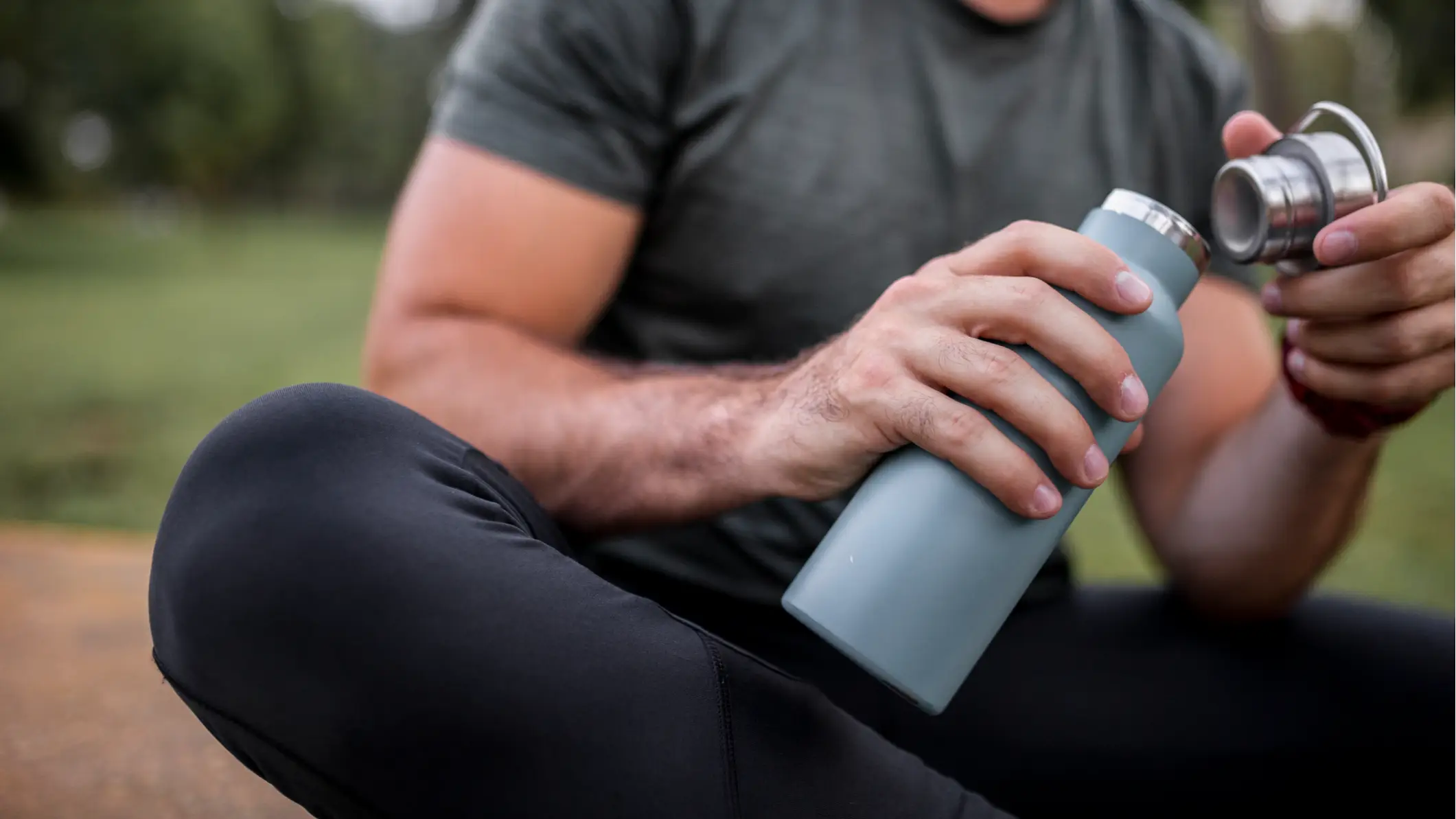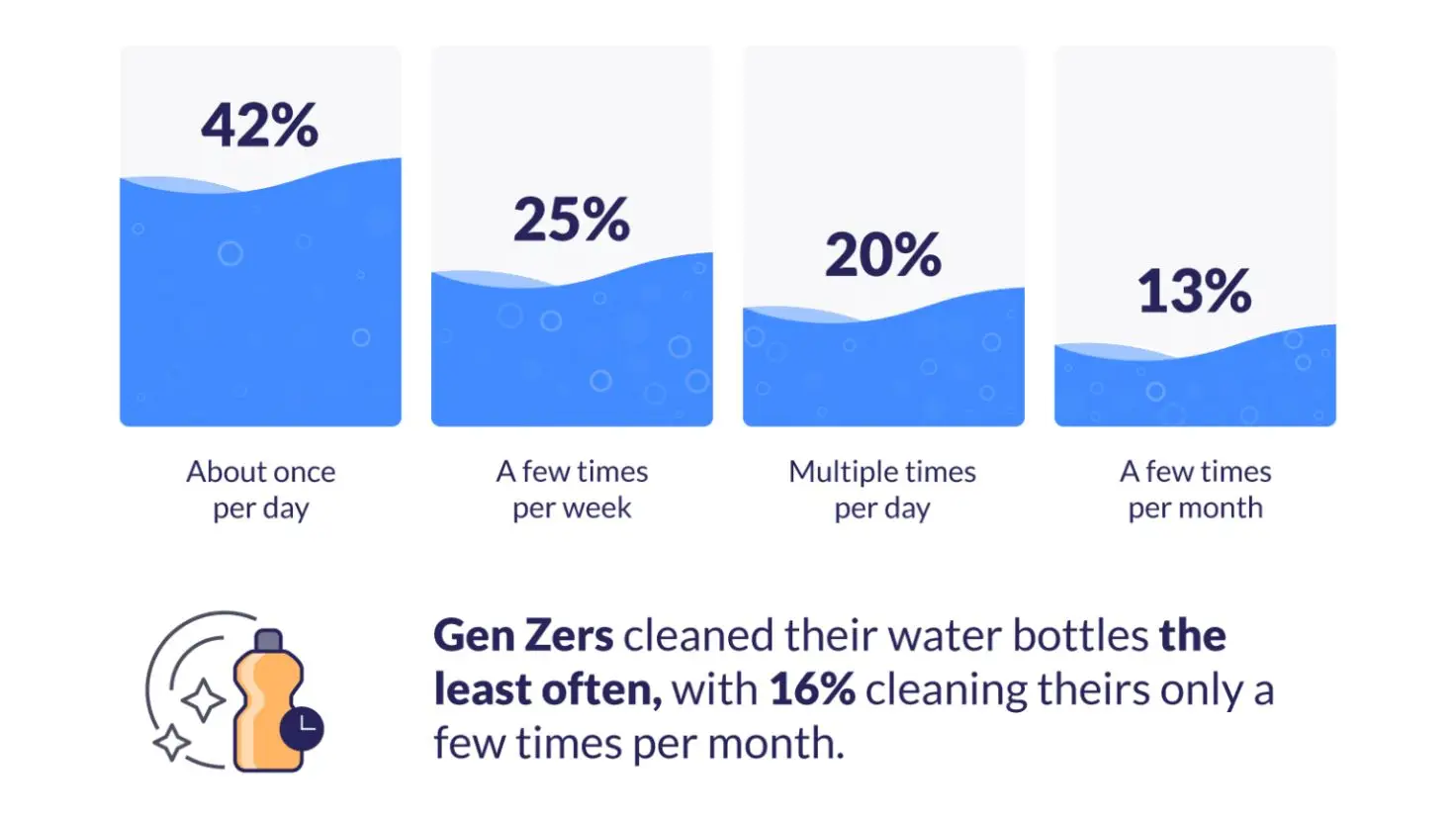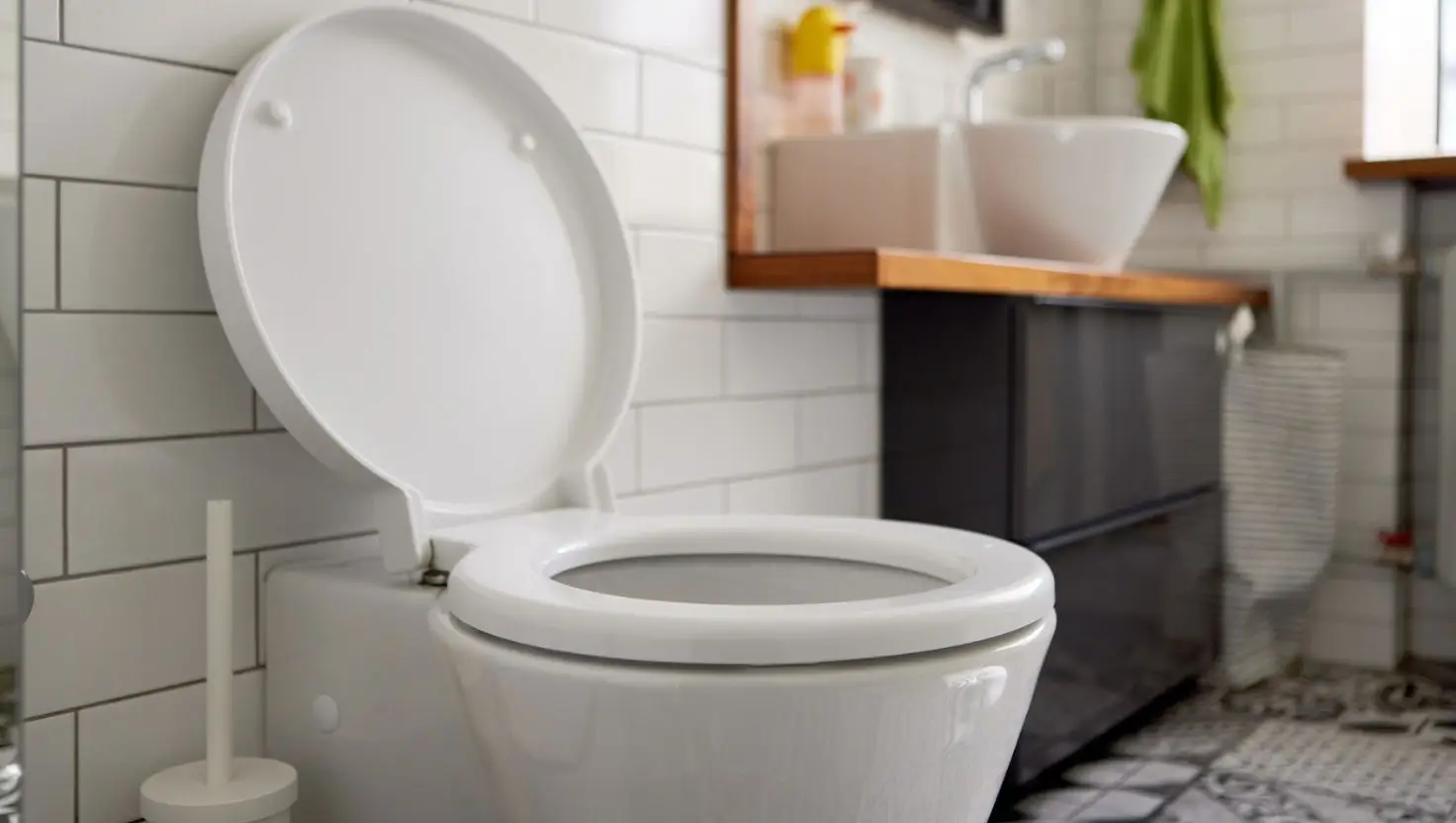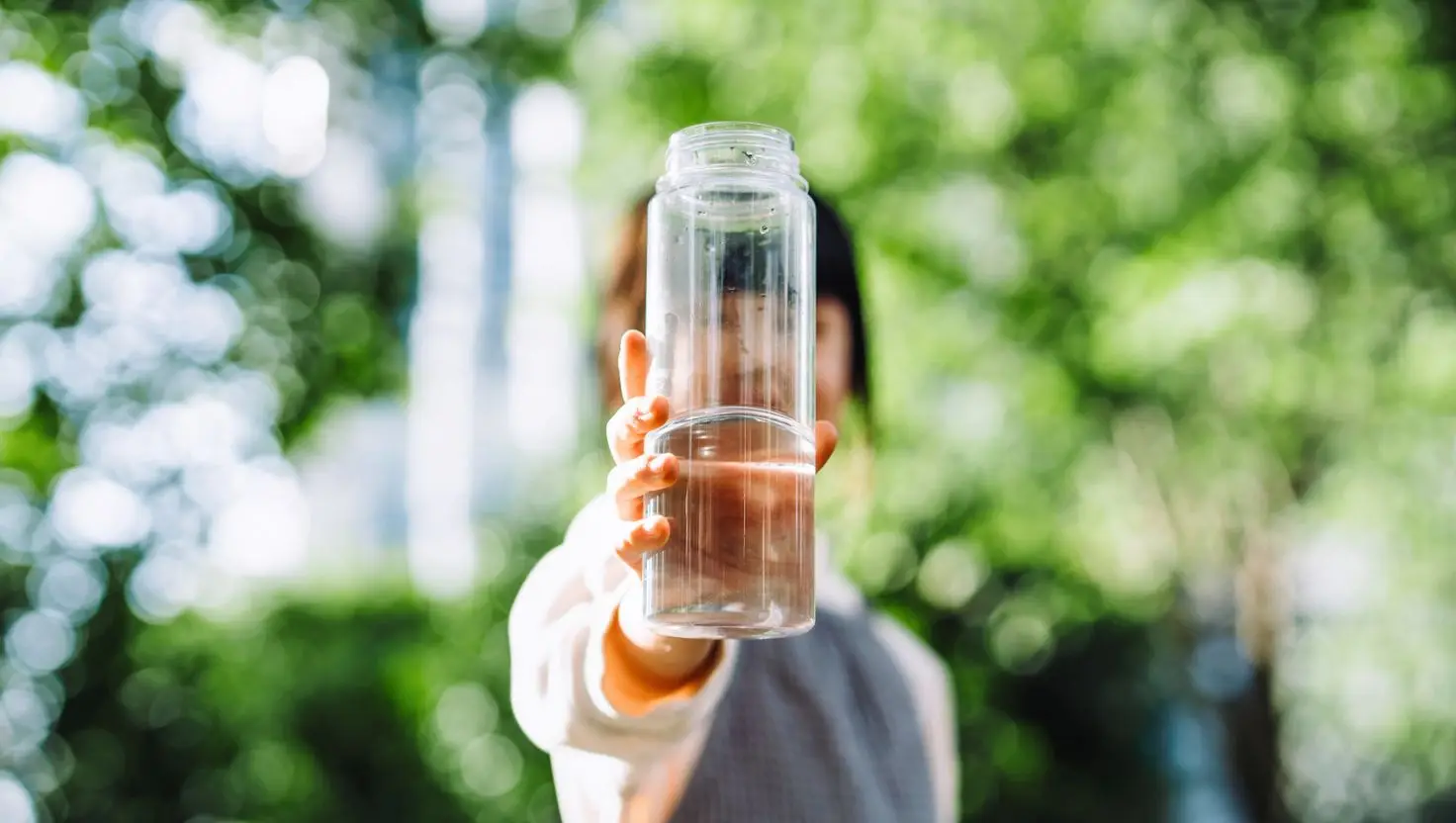
It may be you and your emotional support water bottle against the world, but be honest with me - when was the last time you gave that hunk of plastic a good old wash?
Unbelievably, your reusable water bottle could be crawling with up to 1-2 million bacteria per millilitre at the end of a 24-hour use period.
And if you don’t wash it the following morning, then the germs festering inside of it are only going to multiply.
While most health experts recommend washing your water bottle daily to prevent bacterial buildup and potential issues, some Redditors have admitted that they probably give theirs a rinse ‘maybe once a month’.
Advert
“I literally can’t remember the last time I did that, several months at least,” said one social media user, while a second admitted: “This post just made me go and wash my water bottle.”
Apparently, Gen-Z are the worst at cleaning their bottles, as a 2022 survey conducted by Water Filter Guru claimed only 16 percent of respondents cleaned theirs a few times per month.

It’s thought that the reusable water bottle market was worth around £7.7 billion in 2024, with 50 to 81 percent of university students claiming to use these drinking vessels.
So, as more and more people begin reaching for these bottles, it’s worth finding out why you should be cleaning them way more than you already are, right?
How much bacteria can grow in a reusable water bottle?
According to Primrose Freestone, associate professor in clinical microbiology at the University of Leicester, the ‘longer water in a bottle is stored at room temperature, the more bacteria will grow’.

So if you haven’t washed your water bottle in a while, and you’ve been keeping it at around room temperature (20 degrees Celsius), then you could be at major risk of developing an infection.
Moreover, those who don’t wash their hands regularly will also find that their bottles can harbour bacteria such as E. coli.
"Poo-associated bacteria, such as E. coli, can come from our hands and end up on our lips if we're not good at toilet hygiene," Freestone said, as per BBC.
Water Filter Guru's study also found that reusable water bottles can have an average of 20.8 million CFUs of bacteria.
To put that into perspective, the average water bottle had 40,000 times the number of bacteria found on a toilet seat, five times the bacteria of a computer mouse, and a straw-top bottle had 14 times the bacteria of a pet bowl.
What happens if you don’t wash your water bottle?

If you don’t wash your water bottle very often, then you run the risk of dirt, dust or debris, as well as bacteria, forming in the vessel, according to GP Dr Suhail Hussain.
Bacteria found in the bottles, such as Streptococcus, Staphylococcus and the previously-mentioned E. coli, can cause a variety of issues.
“You may become sick and develop gastric illness, such as diarrhoea or vomiting,” Dr Hussain told The Independent.
“Gram negative rods – another common bacterium found in unwashed bottles – can lead to urogenital tract infections and pneumonia.”
He added that if there is a build-up of mould inside the bottle, it can cause ‘allergy symptoms, such as a runny nose, sneezing, or red and itchy eyes’.
How to wash your water bottle correctly
According to Dr Donald Grant, senior clinician at The Independent Pharmacy, you should be washing your bottle 'thoroughly at least a few times a week'.
Hussain says that washing your reusable water bottle is easy - simply fill it with a hot soapy mixture and swill around, or leave to soak in a detergent mixture.
“Remember to pay special attention to lids/caps and screw top regions – use a clean brush [to scrub them],” he advised.
It’s also recommended that you don’t keep your water bottle in the sun for long periods of time, and try to avoid filling it with anything other than water.
That includes protein shakes, sugar-rich liquids, energy drinks, and more.
